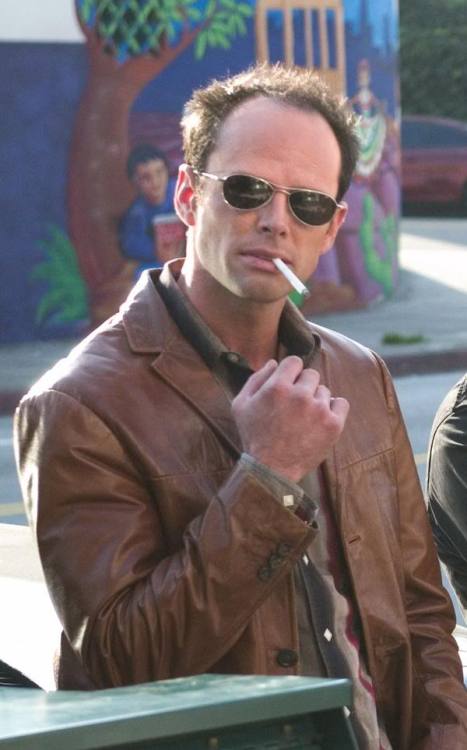 My September Storytellers Unplugged essay is online. It’s called What they do and what they say, and is about revisiting a familiar classic mystery series in the hands of a new author.
My September Storytellers Unplugged essay is online. It’s called What they do and what they say, and is about revisiting a familiar classic mystery series in the hands of a new author.
Appalachian Undead is almost here, so time is running out to take advantage of the pre-order contest Apex is running. Check out a sneak preview of Elizabeth Massie’s story “When Grannie Comes Marchin’ Home Again” here.
I haven’t seen this week’s Doctor Who yet. I did watch the new Wallander, with Kenneth Branaugh. I don’t like these as much as the Inspector Lewis stories. I appreciate the character’s taciturn nature, but the stories haven’t grabbed me.
It took me about three weeks, but I’m finished with The Shield and feeling a little sad that it’s over. Going into it, I had no idea what the series was about, so it was a complete revelation. It features a newly formed Strike Team consisting of 4±1 members who are tasked with drug and gang-related crime in the (fictional) Farmington area of L.A. The new division’s headquarters are in a converted church that becomes known as “the barn.” Farm, barn, get it? The head of the Strike Team is Vic Mackey, played by Michael Chiklis. He’s a wheeler-dealer who plays fast and loose with the rules. We never see much of him before he’s on the Strike Team, so we don’t know what he was like as a street cop, but under pressure to produce results fast, he starts cutting corners, framing suspects, and coercing his fellow team members into going along. He is a strongly corrupting influence, and this is the overarching story: what shit Vic is going to get the team into next, and how they’re going to get out of it a) alive and b) free from criminal prosecution.
Like Homicide: Life on the Street, there are many other characters, all with interesting stories. The various captains over the series run (four in total, including Glenn Close for one season). The detectives (Dutch was a great character), the street cops, the politicians, the rookies, the families, etc. There is always a non-Strike Team plot each episode, and some great interrogation scenes. Lots of location shooting, too. Violent, dark, gritty realism. This isn’t the same L.A. seen on The Closer by any stretch of the imagination.
Vic Mackey is there at the beginning and there at the end, though the same can’t be said of his fellow team members. Though one might be tempted to say the series is about him, he’s the one character who remains unchanged through it all. He’s Tony Soprano, a bull-headed thug who isn’t quite but is almost a sociopath. He is fiercely loyal to his family and defends his team, except when someone threatens him. Then the team member becomes disposable. However, if someone else takes independent action against a fellow team member, woe be him.
I would argue that the real star of the series is Walton Goggins as Shane Vendrell. He’s in the background of the first season for the most part, but as the years go by he emerges to become the most interesting and complex character on the show. Vic never changes, but Shane sure does. As he says in his poignant final missive, he was a follower where Vic was a leader, and he’s not sure which one was worse. He’s equally culpable, but stuff eats at him more. When he tries to go out on his own and replicate Vic’s style, he gets into major trouble. Back on vice, he thinks he can out-maneuver Antoine Mitchell, but he is out of his depth. His girlfriend (later, wife) steals money train cash and whacks a guy on the head with an iron, causing him more grief. The hand grenade incident at the end of season 5 is the beginning of the end for him. He immediately regrets what he did and it almost kills him that he can’t tell anyone about it. Interestingly, Mara supports him when he confesses to her, but not Vic. From that point on, it’s Vic vs. Shane, and the question is who will get who first.
The finale is devastating. I fully expected a Bonnie and Clyde ending, but instead it was more Romeo and Juliet. I did not see it coming, though the signs were all there—in particular in the scene with the teenage cashier studying chemistry who he overpaid. Man that stuff was tough.
I expected the 1-year-anniversary no-longer-a-rookie character to meet some terrible fate that day, too.
Then there was Vic’s comeuppance. Losing his job and his family. The astonishment on Laurie Holden’s face when he started his confession, after a minute-long pause while he braced himself to say out loud all the crimes he’d committed in the past several years. It was against his nature to take the blame for anything, but if he wanted to be free he had to come clean. But how free was he at the end, sentenced to Dilbert-ville for three years? I expected the lights to go out at 6 p.m. The HR woman had warned him. Not another Sopranos ending, surely. And it wasn’t. Vic Mackey with a gun doesn’t mean suicide. He’s too much of a survivor for that. Vic Mackey with a gun means Vic Mackey with a plan. Always another plan. He’s a schemer par excellence and somehow he’ll survive.
Is it the greatest television series ever? If not, it’s right up there. It can’t believe it took me so long to get around to seeing it. Next up: The Wire.

